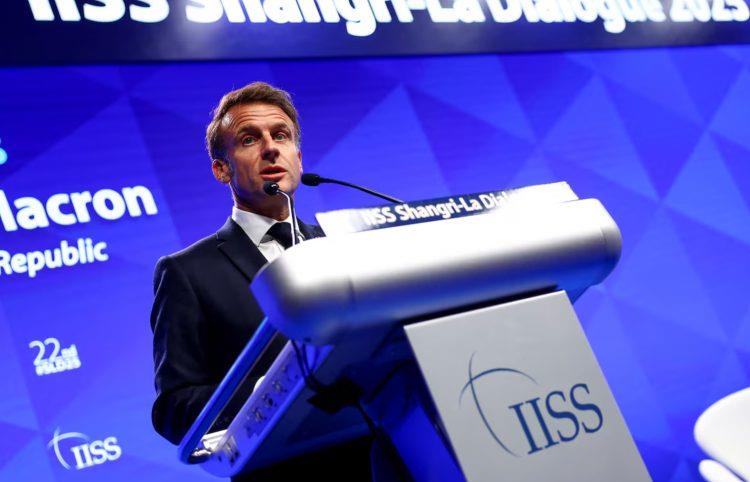
Macron Warns US-China Rivalry Is The Main Threat To Global Order
French President Emmanuel Macron has warned that the growing divide between the United States and China represents the“main threat to the global order,” urging countries to form independent alliances rather than taking sides in the escalating power struggle.
Speaking at the Shangri-La Dialogue, a key security summit in Singapore on Friday, May 30, Macron cautioned that the intensifying rivalry between Washington and Beijing could dismantle the international institutions established after World War II to safeguard peace and multilateral cooperation.
“France is a friend and ally of the United States,” Macron said,“but it also engages with China, even when there are disagreements and competition.” He emphasized that the world must move past neutrality and instead pursue“pragmatic and purposeful coalitions” to prevent the collapse of the global order.
Macron stressed the importance of unity among capable nations, arguing that working together through flexible alliances is vital in a world increasingly fragmented by geopolitical tensions.
He also warned that if the U.S. and European nations fail to help bring an end to Russia's war in Ukraine, their credibility in resolving regional and global crises will be significantly weakened.“Our legitimacy in managing other international crises depends on our ability to resolve this war,” he noted.
Macron's visit comes as several world leaders from China, Japan, and Europe have recently toured Southeast Asia, underscoring the region's strategic importance amid geopolitical competition and disruptions to global supply chains.
Analysts view Macron's remarks as a call for a multipolar approach in an increasingly divided international landscape. His stance reflects growing concern among middle powers that alignment with either Washington or Beijing may limit their sovereignty and strategic flexibility.
Experts at the International Institute for Strategic Studies (IISS), the organizer of the Shangri-La Dialogue, note that Southeast Asia remains a critical arena for influence, especially as the U.S. expands its security partnerships and China reinforces its regional ambitions.
ShareFacebook Twitter WhatsApp Email Print Telegram
Legal Disclaimer:
MENAFN provides the
information “as is” without warranty of any kind. We do not accept
any responsibility or liability for the accuracy, content, images,
videos, licenses, completeness, legality, or reliability of the information
contained in this article. If you have any complaints or copyright
issues related to this article, kindly contact the provider above.


















Comments
No comment